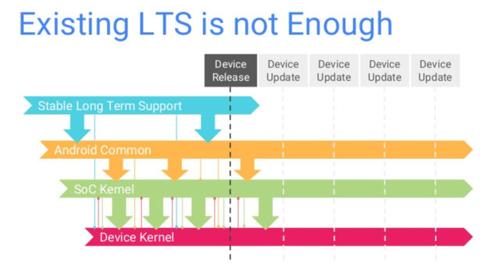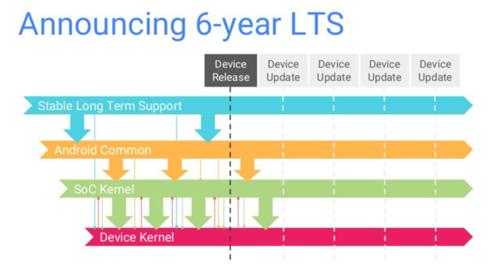linux shortens six year LTS
Posted on September 22, 2023 in tech • 2 min read
In a recent surprising move, the Linux community decided to reduce the long-term support (LTS) for their operating system from six years to two years. This decision, while deemed favorable for personal computers, but raises concerns for Android.
Linux's Long-Term Support (LTS) release provides stability and maintenance for a particular version of the operating system over an extended period. It is particularly beneficial for organizations and individuals seeking reliable software deployments without frequent updates.
For personal computer users, the decision to abandon the six-year LTS version may not have a significant impact. Personal computers often have more flexible hardware configurations, making it easier to update and maintain the latest software. Additionally, many PC users prefer updated releases to benefit from bleeding-edge features and improvements. Therefore, this new direction may not be detrimental for the PC crowd.
The largest concern stems from how Linux's decision affects Android devices, which rely heavily on Linux-based operating systems. Android has revolutionized the mobile landscape, dominating the market with billions of devices running on the versatile and reliable platform. The discontinuation of six-year LTS support may introduce challenges for such devices.
Let's look at two images released by Google in 2017.

This first image shows that it takes two years for the linux image to reach phones by that time Linux kernel support ceases to exist. Linux kernel to Android on devices is a long process which involves a pile of forks.

While this second image shows why the six year LTS was always a welcome move for the Android community.
While this change may have minimal impact on PC users, it could have adverse effects on the Android operating system. The importance of LTS releases for Android's ecosystem is very clear, as it often takes a considerable amount of time for device manufacturers to update their devices. With the discontinuation of the six-year LTS, it could result in slower updates and potentially leave Android devices vulnerable to security risks.
Now that the LTS has reduced to two years, Google needs to bring in changes within the Android platform like the GKI project which can reduce the fork of forks to ensure quicker kernel rollouts to devices.